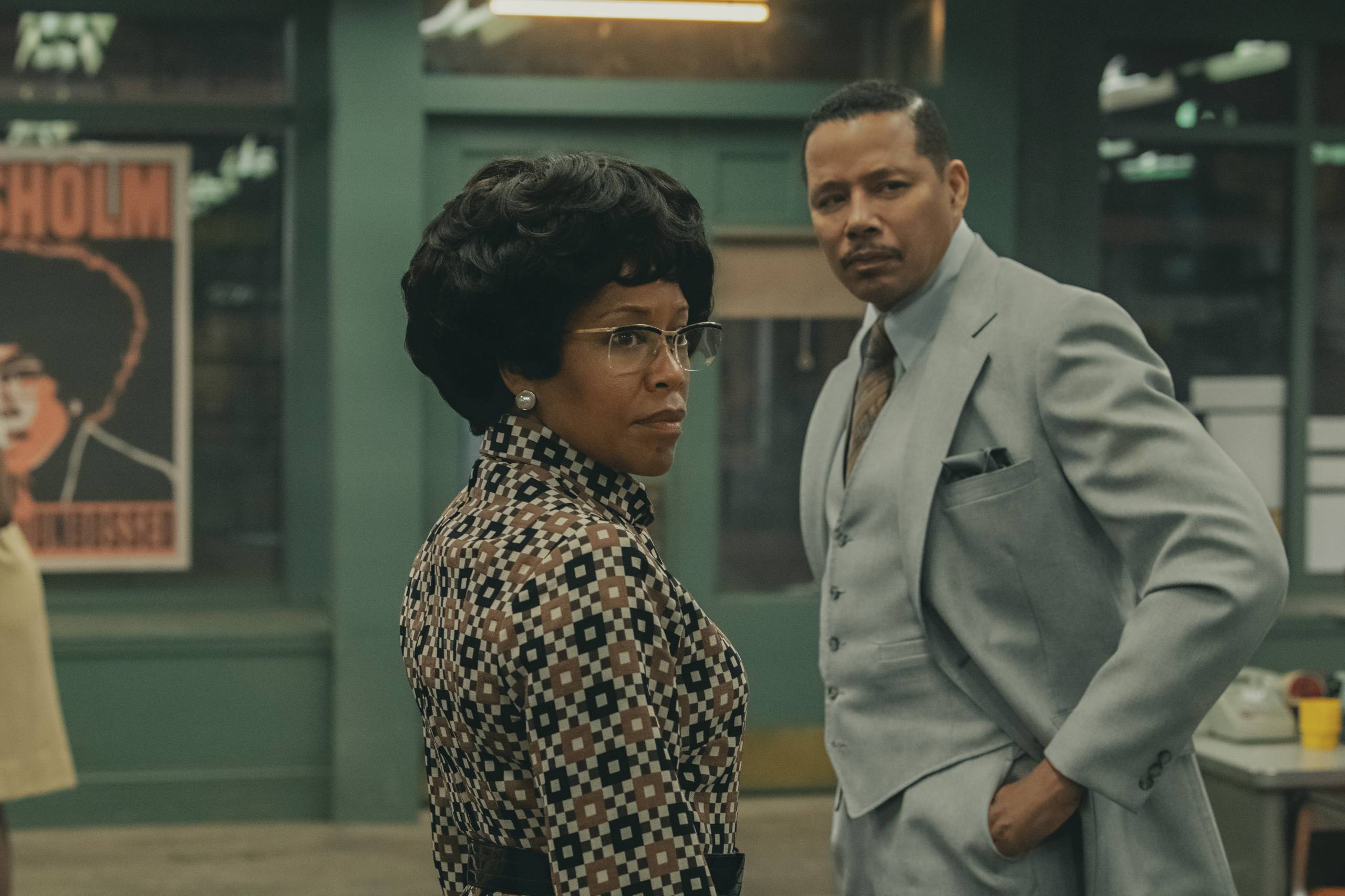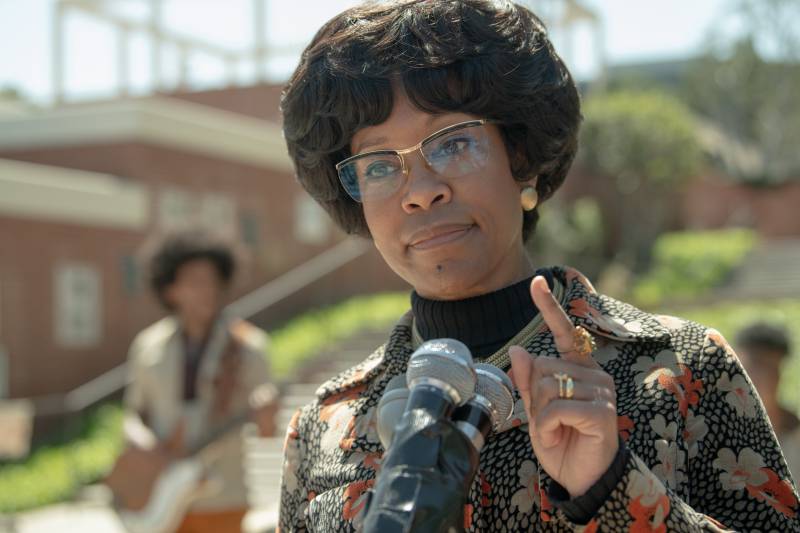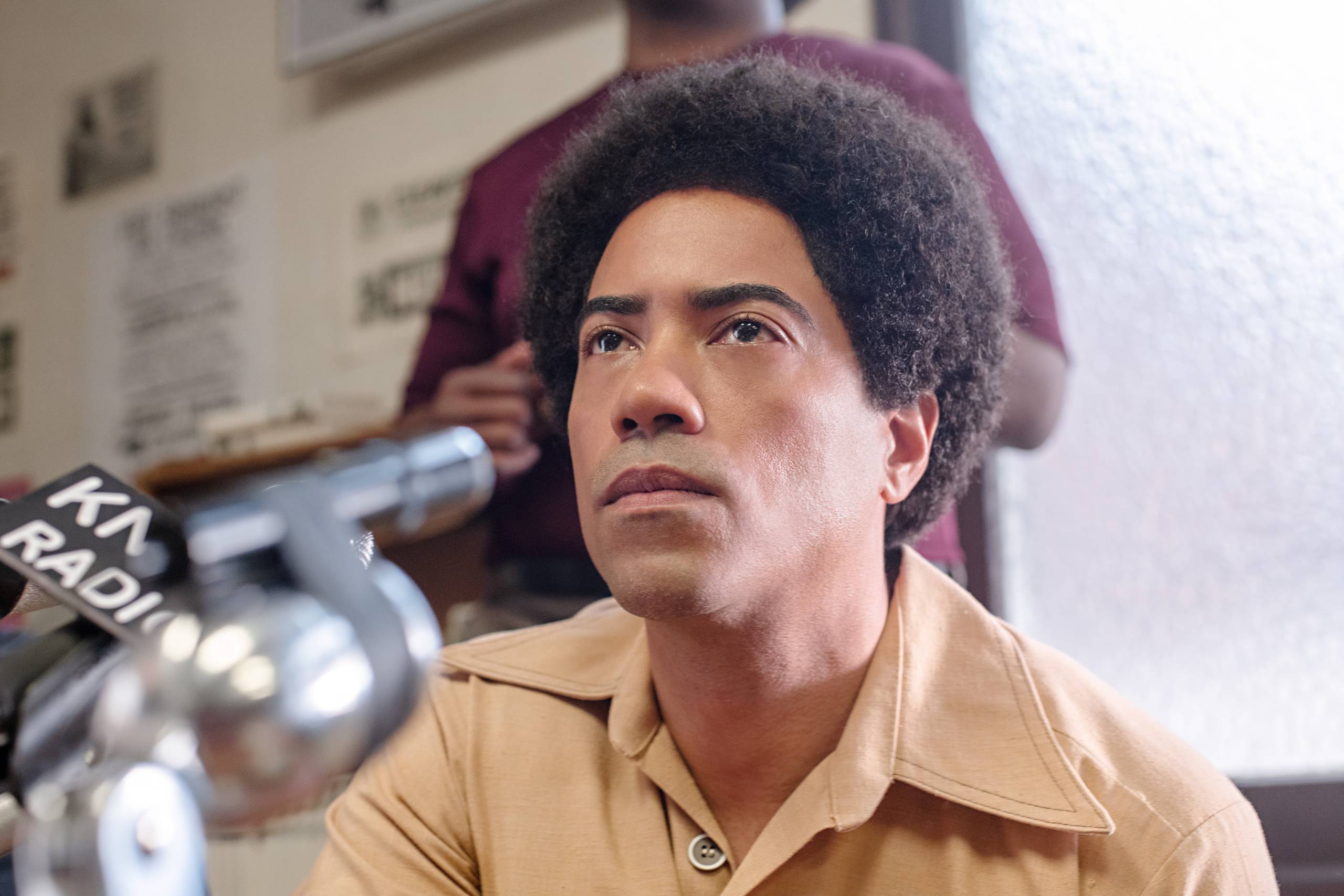In 1969, Shirley Chisholm became the first Black U.S. congresswoman at 44 years old. The Brooklyn representative’s objection to her assignment on the agriculture committee reads today as a justified act of indignance: She was there to get things done for her constituents, seniority be damned.
A version of this incident appears near the beginning of Shirley (premiering Friday, March 22 on Netflix after a one-week theatrical run) to alert us that Chisholm was unwaveringly results-oriented despite obstacles like protocol, process and tradition. And just as importantly, the scene suggests that her voice was not respected.
The obviousness with which the prolific writer, producer and director John Ridley conveys these two points sets the tone for the rest of this watchable but predictable historical drama. The problem is that Shirley consists of a parade of dialogue scenes that, contrary to principles of visual storytelling, show us nothing and tell us everything. The missed opportunity is that we are continually presented with what Chisholm (played by Regina King) represents, rather than taken, shaken and inspired by who she was.

Shirley pinpoints Chisholm’s arrival on the national scene by condensing the universe of 1960s political, racial and social upheaval into a simplistic collage. Chisholm isn’t a radical, though, but an experienced educator and state legislator who believes in change from within the system. Perhaps frustrated with the pace of progress in Congress, she decides at the beginning of 1972 to run for president.



